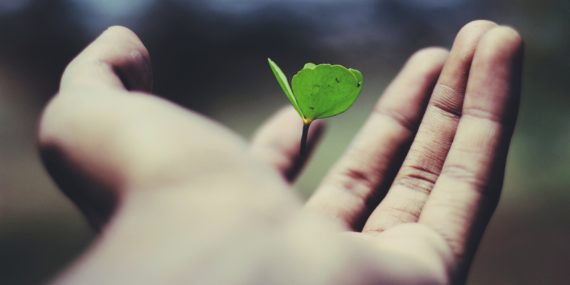“Active Hope”: A compass for navigating sadness in the world

Anne is Beneficial State Foundation’s Community Engagement Manager based in Seattle.
I have a book for you that will dramatically shift the way you view the world.
I can count on one hand the number of books that were as transformational for me as Active Hope: How to Face the Mess We’re in Without Going Crazy by Chris Johnstone and Joanna Macy. Although I read it nearly five years ago, I have relied on its teachings daily ever since. Active Hope truly shifted how I navigate this world.
I spent the second half of 2012 in a serious funk. In hindsight, I’m sure I was depressed. The climate crisis felt like humanity had been catapulted into a death spiral that would destroy most of life on Earth on our way out.
Earlier that summer I accepted an invitation to join an all-expenses paid tour of the tar sands near Fort McMurray, Alberta, Canada. I was going to see with my very own eyes what NASA climate scientist James Hansen dubbed the “biggest carbon bomb on the planet.” Yaaaay!
To prepare for the trip, I studied what climate change really means for us.
Finally, I went to Mordor, a.k.a. Alberta’s tar sands, to experience this apocalyptic future for a few days.
How likely are these apocalyptic future scenarios? To get answers, I immersed myself in articles, TedX talks, and documentaries from leading climate scientists and communicators with cheerful titles like “Game Over for the Climate” and “Global Warming’s Terrifying New Math”. Finally, I went to Mordor, a.k.a. Alberta’s tar sands, to experience this future for a few days.
Reading about the climate crisis and seeing a “carbon bomb” with my own eyes resulted into things: 1) I became very informed (silver lining!) and 2) I became very sad (what’s the opposite of a silver lining?). Climate change was already responsible for four hundred thousand deaths each year and identified as a major cause of the mass extinction that is underway. Humans – a relatively small group of them – are allowing an unconscionable degree of suffering, death, and loss. As a result, our range of possible futures is becoming more narrow and bleak.
Grief overwhelmed me, and I felt isolated by the depth of my emotions. I was surrounded by friends and family who “get” climate change. But none of them were crying every day about it like I was. I felt weird and alone in my grief over the death of the future.
And then my mother – in her soothing wisdom – gave me a copy of Active Hope.
And I turned a corner.
This book taught me to acknowledge and accept my response to our sustainability crisis. It provided tools and strategies for approaching these issues that have made me more emotionally resilient. Now when I encounter bad news about the world I feel sad, but I don’t feel stuck. For example, just today I read about the Pope criticizing the US for abandoning the Paris climate deal. The Trump administration’s decision to withdraw the US from this deal – and refuse to reduce our greenhouse gas emissions – is potentially catastrophic.
Active Hope doesn’t require optimism. It is about the future that we desire, but it doesn’t need our preferred outcome to be likely to happen.
So I practice “active hope” in the context of climate change. I start by acknowledging the reality of our situation (ugh). Then think about the future I want – a stable climate, thriving communities built on justice and equity, and all that good stuff. And then I take steps toward that future. This week I’ll be riding my bike to work, shopping for groceries at the co-op, and attending a ribbon cutting for a new affordable housing apartment building.
Five years after my trip to the tar sands I still think that humanity is in a death spiral that is likely to take out most of life on Earth (I’m really fun at dinner parties). And I still grieve for the death of the future. But through the lens of Active Hope I feel deeply empowered and energized to do the work.
Read more about what Active Hope is and how to practice it, check out the book from the library, and/or share your reactions/reflections in the comment section below. How do you deal with the mess we’re in without going losing balance?
This blog post reflects the author’s personal views and opinions, and does not represent the views and opinions of Beneficial State Bank and/or Beneficial State Foundation.

